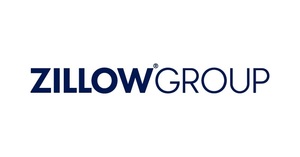
Zillow Expands Tool to Protect Renters From Discrimination
Local Legal Protections tool now includes local information about source of income protections as assistance programs struggle to keep up with demand for housing vouchers
-- A new Zillow feature helps fight renter discrimination by sharing information about local laws that prohibit landlords from discriminating against renters using financial assistance to pay their rent.
-- Housing Choice Vouchers are a crucial and underfunded form of assistance for low-income renters, leaving markets like Orlando, Austin, and Houston with about 10 times as many severely cost-burdened renter households as there are vouchers.
-- In many counties, the value of vouchers has failed to keep up with market-rate rents -- and the faster rents have risen in a county, the less likely voucher values are to have kept pace with those rents.
SEATTLE, Jan. 28, 2021 /PRNewswire/ -- Zillow now provides source of income and voucher discrimination protection data on all rental listings, an expansion of its Local Legal Protections tool. The new data-powered resource is designed to inform renters about whether their state or local laws offer protection from discrimination based on how they pay the rent, whether they use wages from their job, a housing choice voucher (commonly known as Section 8), or alternate forms of income, such as alimony or disability.
Federal law does not prevent landlords from rejecting all housing vouchers, however there are a number of state and municipal laws that prohibit discrimination against renters with vouchers. Currently 49.3%1 of rental listings in the U.S. are located in areas that offer tenants protection against source of income or voucher discrimination.
"Zillow is building an inclusive rental platform, developing products that make rental listings accessible to all renters," said Christopher Roberts, Senior Vice President and General Manager of Zillow Rentals. "By expanding Local Legal Protections, we are empowering renters and educating property owners about local voucher discrimination protections -- and hopefully removing a barrier for people shopping for a new place to call home."
Local Legal Protections is a resource first launched in 2018 to help LGBT home searchers know whether their rights were protected by local laws, since federal law does not provide protection against housing discrimination based on LGBT status. The tool is meant to inform renters of their rights as they search for a home, and also help inform landlords of local laws in their area.
Finding a home is the final hurdle for many renters who use rental assistance, because many assistance programs are struggling to keep pace with the demand for vouchers. Housing Choice Vouchers (HCV) are a crucial and underfunded form of assistance for low-income renters. In 2019, there were nearly four times as many severely cost-burdened renter households in the U.S. (spending 50% or more of their incomes on housing) than there were vouchers available -- 9.7 million of these households and just 2.6 million vouchers. The program has struggled to keep up with demand even more in markets such as Orlando, Austin, and Houston, where there are about 10 times as many severely cost-burdened renter households as there are vouchers.
In many areas, the value of vouchers has failed to keep up with market-rate rents. Zillow research shows in places where market-rate rents grew the fastest from 2015 to 2020 the gap between market rate rents and voucher values widened the most. Meaning the faster market rate rents grow, the less likely that voucher values have kept pace. Of the 303 counties Zillow analyzed in the largest 100 metropolitan areas with adequate rental price data, almost half (44%) saw market-rate rents rise more than voucher values from 2015 to 2020.
These same renter households have been particularly hard-hit by the coronavirus pandemic. The likelihood of job loss, on top of their existing higher housing cost burdens and lower incomes, means that renter households have borne the brunt of the economic fallout caused by COVID-19.
Zillow believes everyone deserves to find a place to call home, regardless of race, color, national origin, religion, sex, familial status, disability, sexual orientation, or gender identity. Zillow is actively investing in more resources and products to help improve access and address existing inequalities in housing.
About Zillow Group
Zillow Group, Inc. (NASDAQ: Z) (NASDAQ: ZG), the largest portfolio of real estate brands on mobile and the web, is building a safe, on-demand real estate experience. Whether selling, buying, renting or financing, customers can turn to Zillow's businesses to find and get into their next home with speed, certainty and ease.
In addition to Zillow's for-sale and rental listings, Zillow Offers buys and sells homes directly in dozens of markets across the country, allowing sellers control over their timeline. Zillow Closing Services offers customers title and escrow services to support a more seamless transaction experience. Zillow Home Loans, our affiliate lender, provides our customers with an easy option to get pre-approved and secure financing for their next home purchase.
Millions of people visit Zillow Group sites every month to start their home search, and now they can rely on Zillow to help them finish it — with the same confidence, ease and empowerment they've come to expect from real estate's most trusted brand.
Zillow Home Loans, LLC is an Equal Housing Lender; NMLS 10287, www.nmlsconsumeraccess.org.
1As of 12/20/20, 49.3% of rental listings are located in areas with laws prohibiting discrimination against renters with vouchers. That figure is consistent with the Poverty & Race Research Action Council's estimate. Geographies based on the Urban Institute's 2020 State and Local Voucher Protection Laws dataset, accessible from: https://datacatalog.urban.org/dataset/state-and-local-voucher-protection
SOURCE Zillow








Share this article